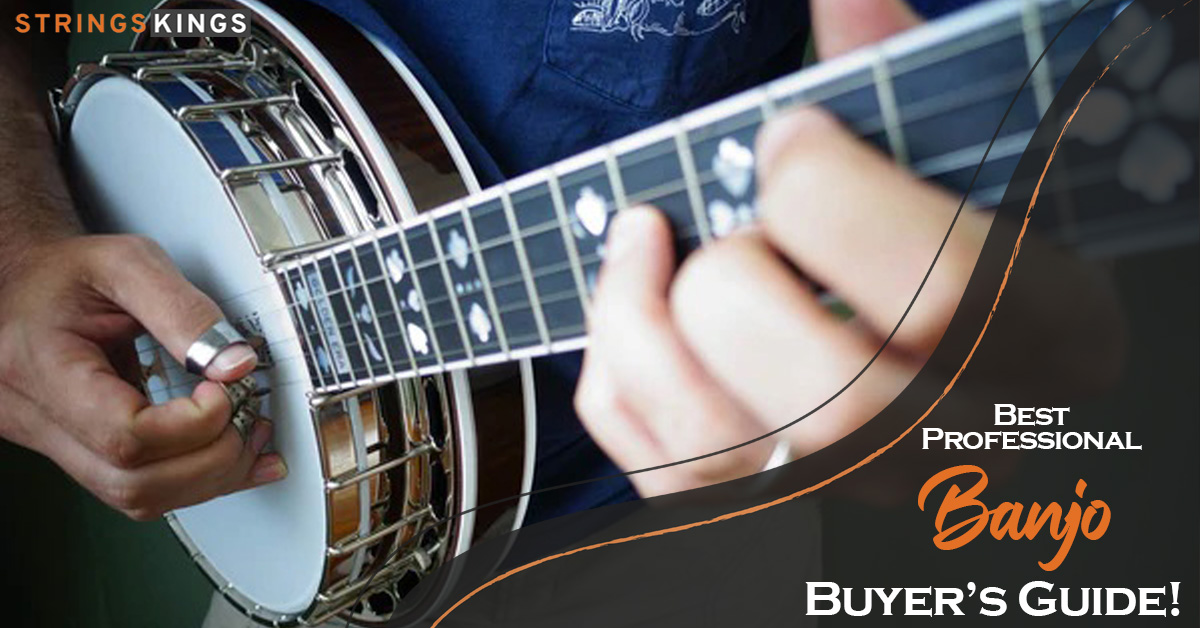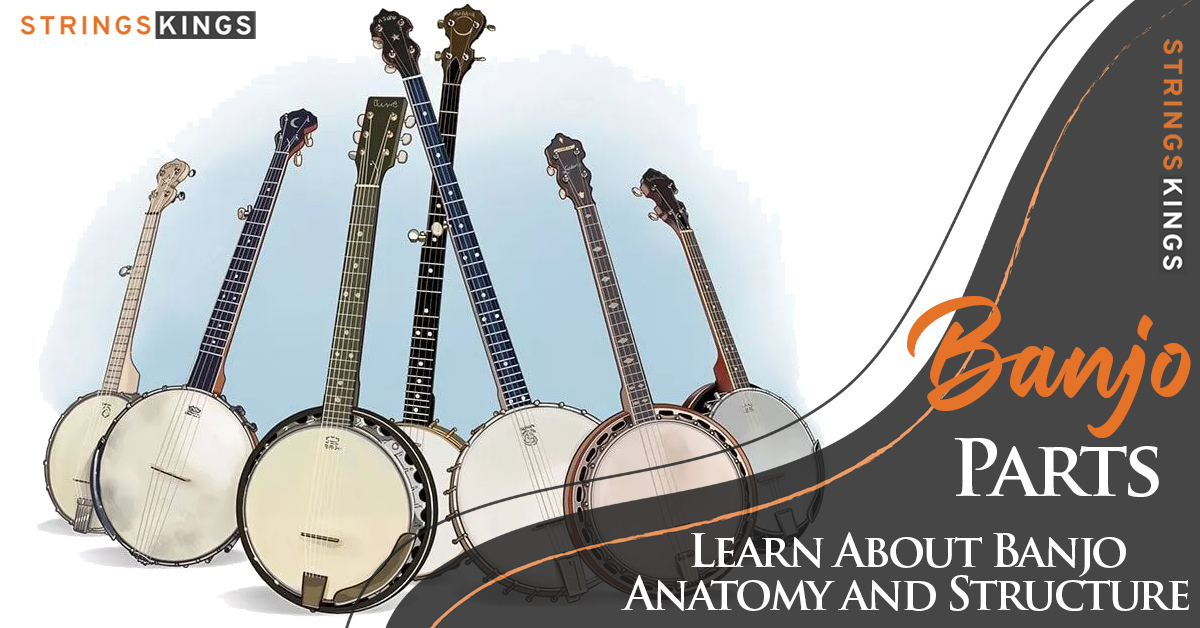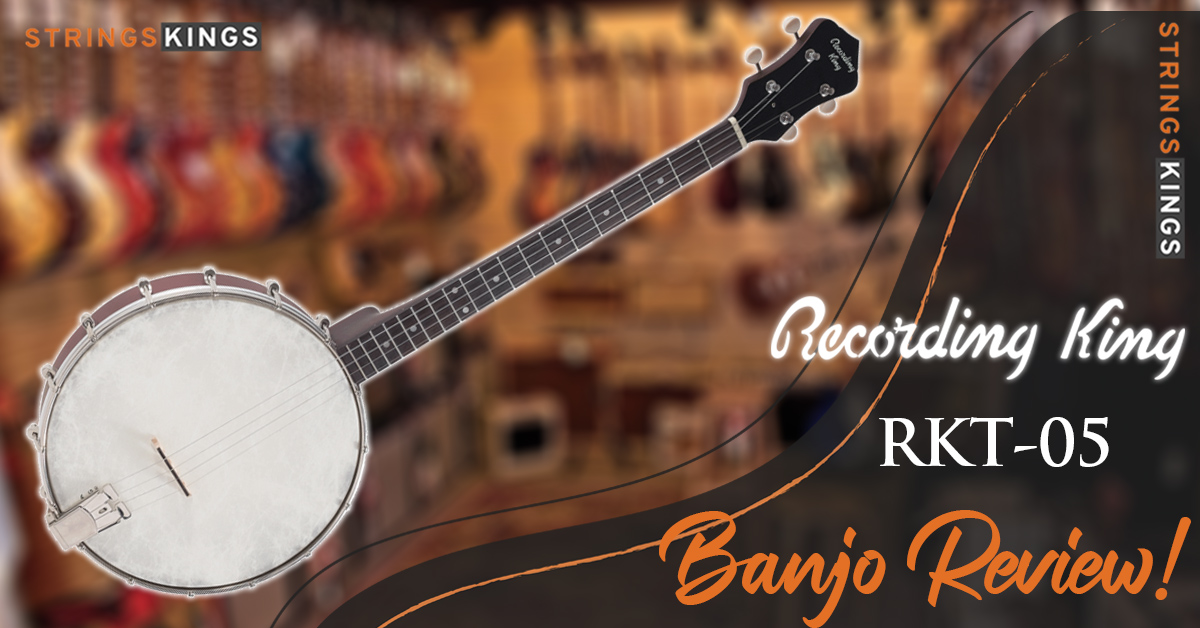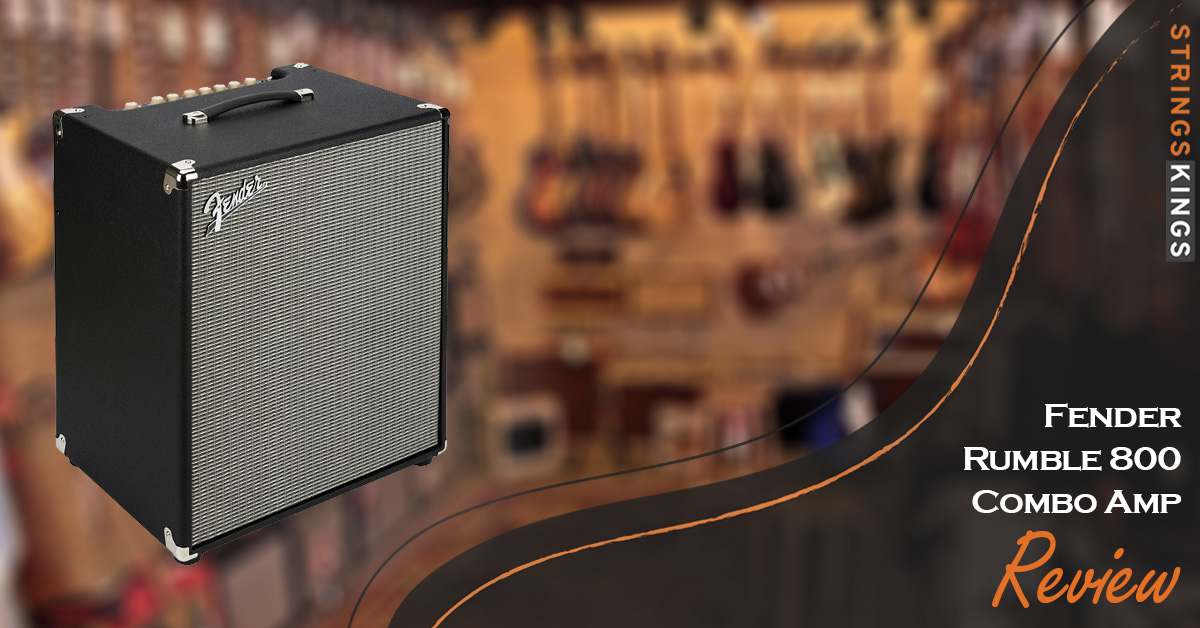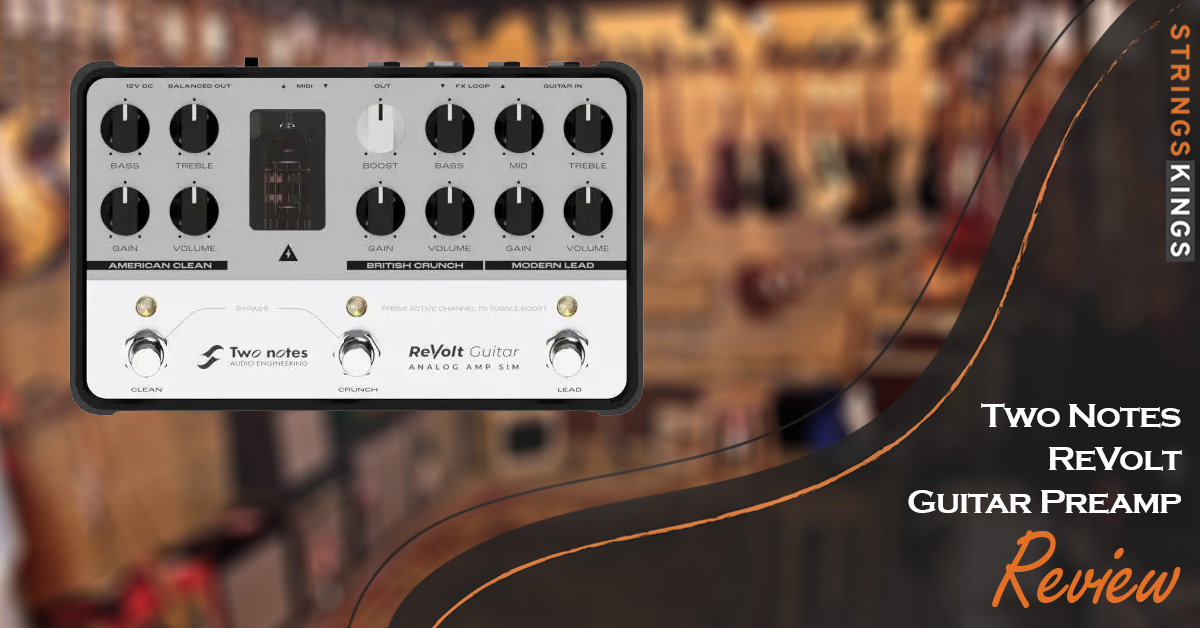Table of Contents
Check Out The Best Banjo Tuning Pegs That You Can Find Available In 2023!
Introduction
The best banjos play an important role when it comes to American folk music. It’s enjoyable to play, and it gives the satisfaction of a lifetime. The best banjo tuning pegs will assist in making the process of tuning up your instrument a lot easier.
Banjo is not restricted to folk music. Modern-day musicians just as The Avett Brothers, Mumford, and sons have sparked the curiosity about playing banjo in youngsters. With every passing day, it’s gaining more popularity.
However, when we speak about the historical past of the banjo, it is unclear. The first resemblance of a banjo was seen in West Africa. However, it became more popular in America, especially among the slaves.
In order to find the best banjo tuning pegs, you first need to decide on the features that they should include. The finish of the tuner and the way it appears can improve the overall look of your banjo or 5-string banjo. The banjo tuners can have a finish of nickel, chrome, silver, and even gold plated. It will depend on your finances and style about which banjo tuner you will choose.
First, we will take a look at the best banjo tuning pegs you can find on the market and after that, we have some great buyer’s guides in order to help you choose the best banjo tuning pegs for you.
1. BQLZR Semiclosed Banjo Machine Head Tuning Tuner Peg
It is the finest inexpensive tuning peg for banjo. It comes with the whole tuning package. It contains 5 pieces of tuning peg and 4 pieces of the bushing; it includes 2 pieces of left machine head tuners, 2 pieces of right machine head tuners, and one nonslip banjo peg.
Features
- It comes with four bushings.
- It is a complete set of banjo tuner peg.
- It is made of zinc alloy and PVC.
- The color is available in white and silver.
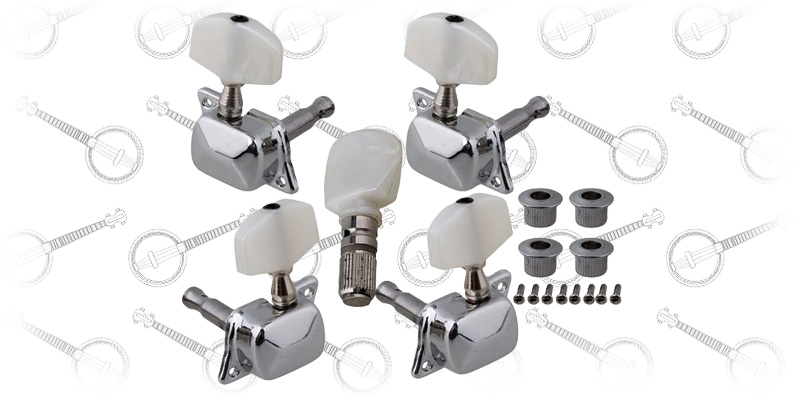
You Can Buy BQLZR Semiclosed Banjo Tuners on the Link Below!
2. Gotoh Tuners Machine Heads SG381-01 – Chrome
Gotoh banjo tuners are recognized all around the world. They have evolved through improvement and are coming with a considerable application of high technology as a standard.
Because they improved precision fitting gears, they gained a lot of trust and right now are considered the number one machine head by many musicians in the world.
These tuners come with a metal keystone head and will be perfect for your three-on-a-side setup. Additionally, there is mounting hardware included in the package with tuning pegs.
Features
- These super tuners are recognized as such around the world.
- The SG381 has evolved through improvement without compromise at any stage and come equipped with a considerable application of high-technology as standard.
- With the improvement of precision fitting gears, marvelous touch on playing they have gained a considerable reputation and are trusted as the No.1 machine head by many musicians all over the world.
- These come with a metal keystone head and are perfect for your three on a side setup, mounting hardware included.
- Color Chrome.
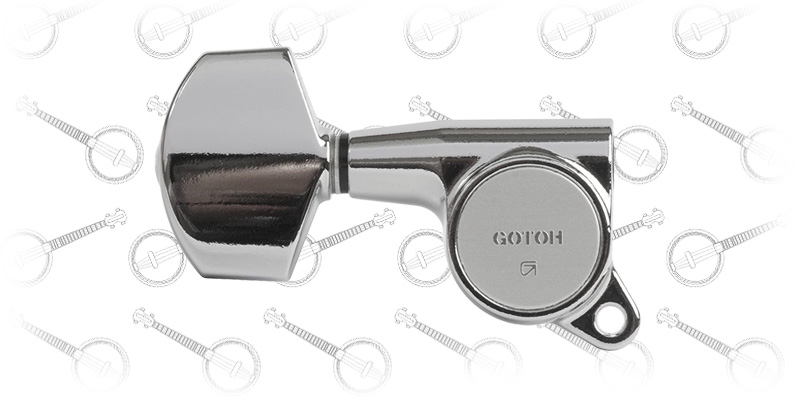
You Can Buy Gotoh Tuners Machine Heads SG381 on the Links Below!
3. Golden Gate P-149 Banjo Tuner – Nickel
This banjo tuner peg makes use of a geared mechanism, and it doesn’t slip and offers you precise control. It is a large improvement in comparison with the original ad traditional friction peg. However, you might need to enlarge the opening on your 5-string banjo to fit the fifth tuning peg.
The general quality of the tuning pegs is really good in comparison to the price of the peg.
Features
- Geared 5th peg to fit modern and vintage banjos with 9mm tapered holes.
- 10:1 gear system allows quick, precise tuning.
- Triple nickel plating provides a lustrous and durable finish.
- Removable ivoroid button is comfortable to hold and looks great.
- To learn more, please see our Product Description below.
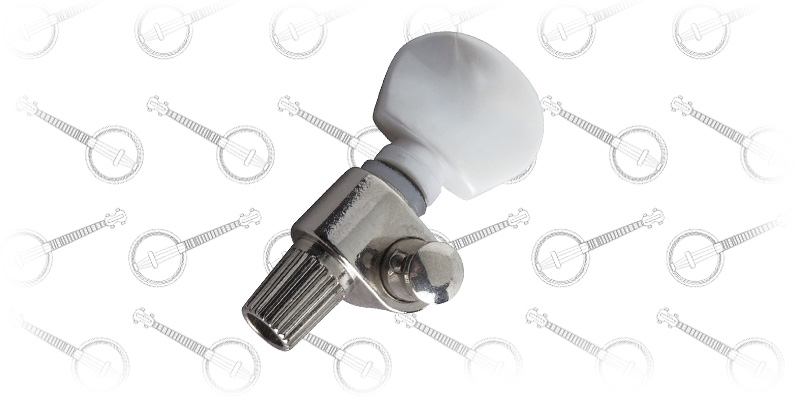
You Can Buy Golden Gate P-149 Banjo Tuner – Nickel on the Link Below!
4. Holmer String Tuning Pegs
In case you are searching for heavy-duty reliable normal size banjo tuning pegs, then this will be your best option.
It is a set of 6 pieces of machine heads, which additionally comes with washers and screw bushings. It is a right-handed tuning peg in chrome color.
Features
- Set of 6pcs right handed guitar machine heads, easy to install, compatible with most electric guitar or acoustic guitar.
- Chrome color, oval button, zinc alloy material, quality sealed tuning pegs, great replacement for your old, broken tuners.
- Gear ratio: 1:14, with heavy duty internal gear, fit 10mm (0.39inch) standard machine heads hole.
- Package includes: 6 x Right guitar machine heads; 6 x Ferrules; 6 x Screws; 6 x Threaded bushings.
- 100% brand new, never used, testing is fine.
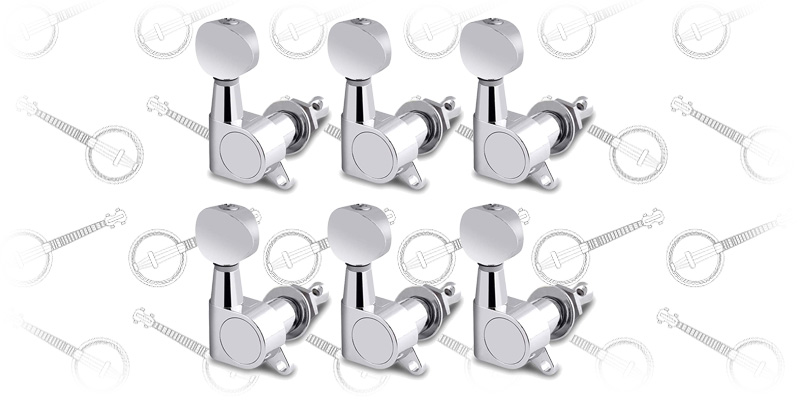
You Can Buy Holmer String Tuning Pegs on the Link Below!
5. 5pcs Banjo Tuning Pegs for Banjo Geared Machine
Those are really good tuning pegs, especially if you are waiting to replace your old ones. These banjo tuning pegs are of good workmanship and you will be able to use them for a long time.
The set includes 4pcs machine heads and 1 piece Banjo non-slip peg, this will be a great choice for your old and broken tuning pegs. These pegs have a chrome color and are made from Zinc alloy.
Features
- Durable with good workmanship for long time use.
- Top choice for your old and broke one.
- Includes 4pcs machine heads and 1 pc Banjo non slip peg.
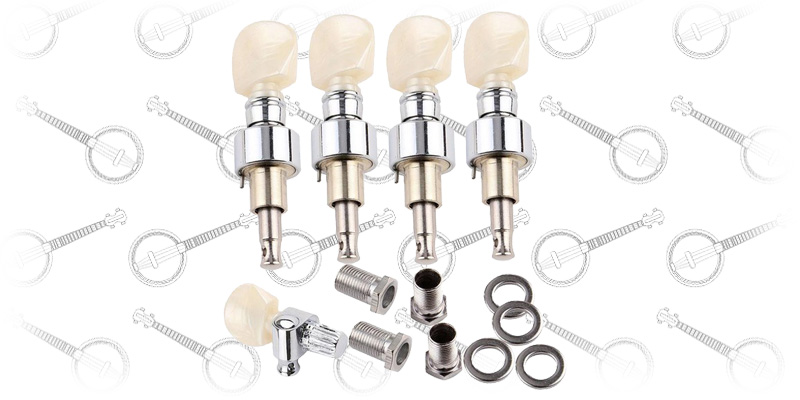
You Can Buy 5pcs Banjo Tuning Pegs for Banjo on the Link Below!
Banjo Tuning Pegs – Planetary vs Geared
Friction Pegs
Friction pegs most usually are coming into styles. They have differences between them, however, both of them are equally difficult to use on your banjo instrument.
Tapered Friction Pegs
Coming back to friction tuning pegs. The primary versions have been very similar to a violin tuning peg. A tapered dowel was inserted into a matching hole that was also tapered. When the peg and hole match perfectly, there is good solid contact and the tuning peg stays in place. This changes over time and you ultimately have pegs that slip.
Pegs could be lubed, to be smoother, or abrasives added to make them keep in place. The latter is a temporary fix.
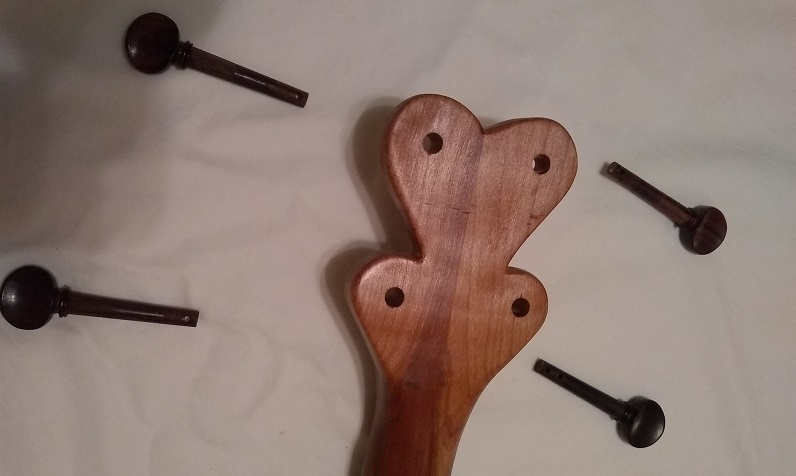
These very simple pegs have been made out of all kinds of materials, with favorites being wood and bone. For wood, ebony is good, although several substitutes are great equivalents. Bone has its tradeoffs. It’s hard and sturdy, however, on the downside, it can be slick and fail to grip, leading to string slippage.
There is one final piece to the puzzle right here. This kind of friction peg was in frequent use before steel strings. Instruments made with this style of peg are usually from the period of gut strings. Gut strings are to be tuned under much lower tension. This kind of peg may not have the ability to carry teal strings at full pitch.
In case your banjo has these and you want a brand new set, it is not so simple as buying them and sticking them on. They have to be custom cut to the opening and have the matching taper. The only approach to do this is to ream the holes and taper the pegs to match.
It is an easy process with the right tools. Not so easy without it. This isn’t something that many fretted instrument shops can assist you with, but you are in luck, a violin store deals with this daily and has the proper peg shaper and reamer. This service can get expensive, so verify the prices first. It might be just as cheap to purchase the tools and fit them yourself.
Champion Pegs
The invention of Champion pegs came somewhere near 1900. These are also friction pegs, however, they use a mechanical clamping action to remain in place.
There is a screw in the bottom that works as a pressure adjustment. These do not work any better than correctly fit tapered pegs, but there are a whole lot easier to cope with than poorly match taper pegs.
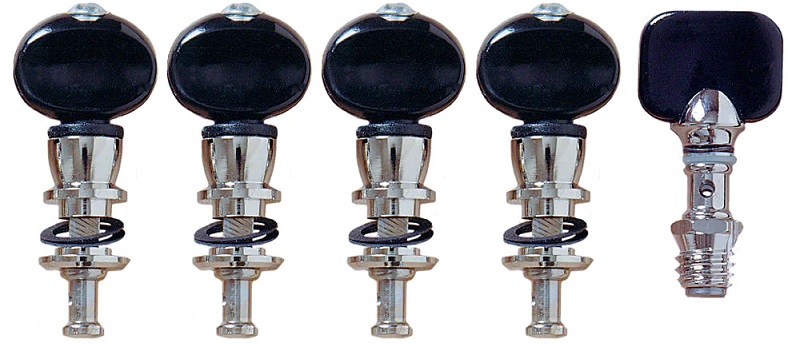
In addition to the issue with peg slippage, both of these styles of Banjo friction pegs are a 1:1 ratio. With no gears, it will be more difficult to find the pitch.
Despite a couple of shortcomings, these are still popular after more than a century. These make nice replacements for old banjos.
Planetary Banjo Tuners
Planetary tuners provide even pressure while turning smoothly. Most high-end banjos have this style of tuning machine. A planetary tuner is often a 4:1 ratio, which means every four rotations of the button creates one rotation of the peg.
This allows for some level of precision while retaining the ability to retune rapidly. This is necessary since it is common to change your banjo’s tuning on the fly. Not something that a player usually does with other instruments.
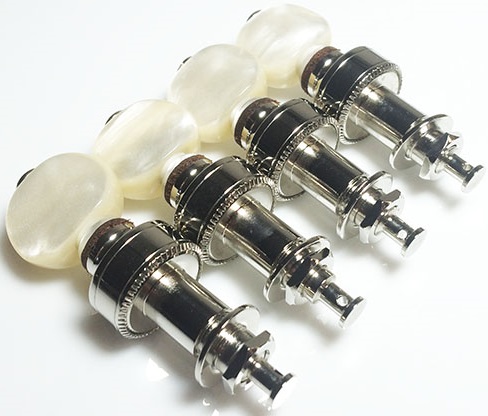
Banjo Planetary tuners are pretty complicated components. Nowhere is it more important to be sure of the quality. Low-grade planetary tuners will slip and cause more trouble than they are worth.
The final reason for the popularity of this style of banjo tuner is cosmetics. These more closely resemble conventional friction pegs.
Geared Banjo Pegs
Guitar-type tuners have a wormgear and buttons that stick out from the sides of the headstock. Functionally, these are a superb choice for banjos. Most guitar tuners have a 14:1 ratio, making fine-tuning a breeze.
This does make changing keys way more time-consuming. The fact of the matter is, most players usually are not re-tuning anyway, so it most likely doesn’t matter. Purely for the sake of getting in tune, this kind of tuner has some real advantages for the banjo.
A worm gear tuner, can’t spin loose. Even the most affordable set of gears banjo tuners will maintain a tune even if you play every day. They might be sloppy, or hard to turn, however, they cannot spin loose based mostly on the design. These are in widespread use and cheap for a good quality set.
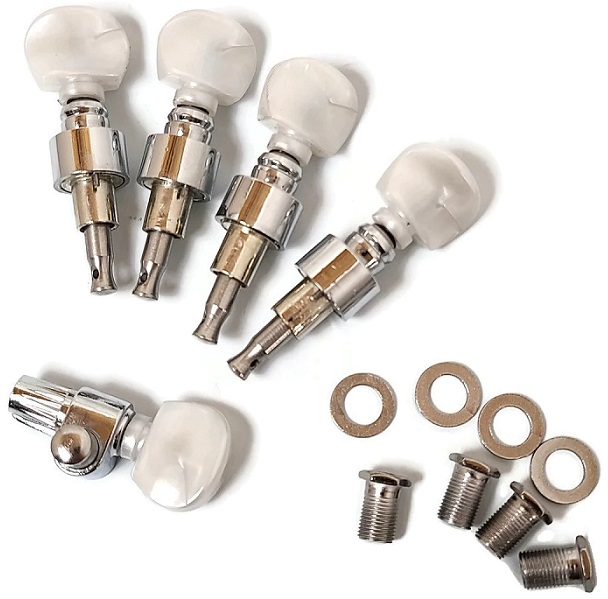
Why wouldn’t all banjo players use guitar-style tuners? It comes back to tradition. Although there are exceptions, this kind of tuner is related to lower-quality banjos. There is some truth behind this, as these are currently large cost savings, but still operate well. Not so with cheap planetary tuners, which are prone to slipping.
And there is that gear ratio. In case you do retune between songs, the high ratio takes significantly longer.
Conclusion
Those are the basics when it comes to banjo tuning pegs and everything you need to know about them. They are maybe a small part of your instrument but still very important.
Happy strumming!

